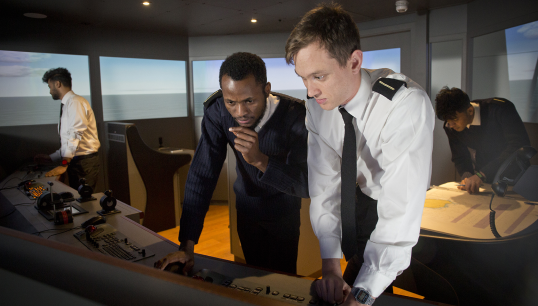Maritime Skills Commission recommends course modernisation and funding overhaul for cadets in new report
24 June 2021

The Maritime Skills Commission (MSC) has released its Seafarer Cadet Review Report, which recommends that the government must overhaul funding for seafarer training and modernise courses if UK seafarers are to remain competitive in the global shipping sector.
The MSC was set up a year ago by Maritime UK and the Department for Transport, as part of the government's Maritime 2050 strategy. Its role is to ensure a pipeline of talented people to serve all parts of the industry, covering shipping, ports, leisure marine, engineering, science and professional services.
The report recommends that seafarer officer training should be fully funded by government and cadets given access to modern technology, such as simulators and blended learning tools, for the UK to maintain its leadership in maritime expertise and attract global investment.
It also recommends that the industry should encourage more applicants to have university degree or equivalent levels of education, and ensure Standards of Training, Certification, and Watchkeeping (STCW) qualifications are the minimum standard for all recruits.
To reach these conclusions, the MSC considered evidence from Lloyds Register, covering the likely trajectory of technology transformation in shipping. It also received submissions from the Department for Transport covering the current funding mechanisms for cadet training, alongside a full survey of current cadets through Nautilus International.
The MSC's review was overseen by a working group of commissioners, including Nautilus International general secretary Mark Dickinson, and chaired by Brian Johnson (Chair), Chief Executive of the Maritime and Coastguard Agency.
'We are proud of the UK's position internationally in the maritime world. As the international shipping world looks to make some huge changes over the coming decades, UK officers will play an increasingly important role in managing that transition,' Mr Johnson said. 'This report outlines how the training that UK officers receive at the start of their careers will adapt to fully equip them with the skills to take on this key leadership.'
Sarah Kenny, chair of Maritime UK, added: 'The UK has a global reputation for its maritime education and training. To maintain that position, we must constantly assess our position and remain one step ahead. I commend the Commission for its leadership on this review and look forward to working with the sector to implement its recommendations.'
Maritime Minister Robert Courts also commented on the release of the report, which comes just ahead of the International Day of the Seafarer on 25 June: 'Britain has long been a leader in maritime and as we move into a world of greater innovation and automation, we must ensure that our seafarers have the skills they need to thrive in the 21st Century.
'As we look to this year’s International Day of the Seafarer, the Maritime Skills Commission report sets out how we can refresh the current training programme to keep our Merchant Navy at the forefront of maritime innovation for years to come.'
Tags
More articles
Members invited to have their say in once-in-a-decade survey
Nautilus is encouraging members to participate in a crucial industry census, which builds on previous research undertaken by the Union every ten years.
Union campaigns for a fair future on Day of the Seafarer
Nautilus general secretary Mark Dickinson will take the Union's Build Back Fairer campaign to Liverpool on 25 June for International Day of the Seafarer.
